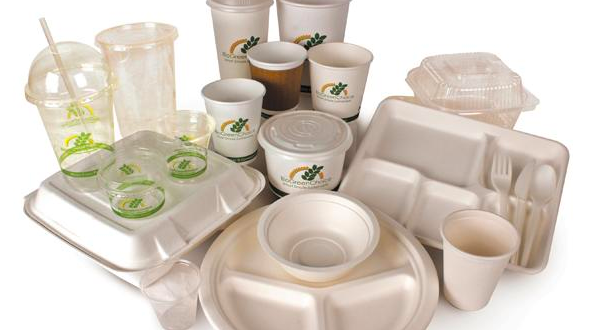
Compostable cups, bags, and cutlery were supposed to be the answer to single-use plastic products, but recent news reports say that instead, they are causing problems for recycling plants and also ending up in landfills where the conditions are not right for them to decompose. According to The Wall Street Journal and the Daily Caller, in order to decompose, compostables need high heat and moisture — they were actually intended to be sent to specially designed disposal sites, where they will break down properly and can add nutrients to the soil. According to the Daily Caller, “[w]hile a growing number of programs offer compostable disposal sites, a lack of proper labeling and public unawareness is resulting in many people simply throwing away their compostables in the trash, where they end up in landfills and fail to decompose,” or they end up in recycling plants where they contaminate the plastics being recycled.
As a result, some cities are halting their composting programs:
- New York City has decided not to expand its household compostables collection program because only 11 percent of organic waste was placed into the proper brown compostable bins.
- London Heathrow Airport asked two of its biggest coffee vendors to stop using compostable cups when it learned that the company that collects its waste cannot process compostable cups
This comes as the number of certified compostable products has increased by 80% in the last four years. Given the difficulties of getting the products sorted and at the right facilities, some large companies are looking to make fully biodegradable packaging that will decompose in a landfill. Neslé and Pepsi, for example, are working with a Georgia company to develop bottles and chip bags that would be capable of biodegrading in landfills or even at your home.
Why This Matters: Single-use plastic and its waste products are pervasive and we know we need to get this problem under control. We cannot let this distressing news keep us from getting recycling and composting right in the U.S.! We need better infrastructure to deal with these problems and more public education to help people toss their trash in the right place. We all know the “system” now, such as it is, can be very confusing. Consumers, by and large, want to do the right thing. There are answers, we just need to find them, which will take government and the private sector working together.
January 24, 2019 » bins, biodegradable, compost, landfills, plastic, pollution, recycling, trash, waste


